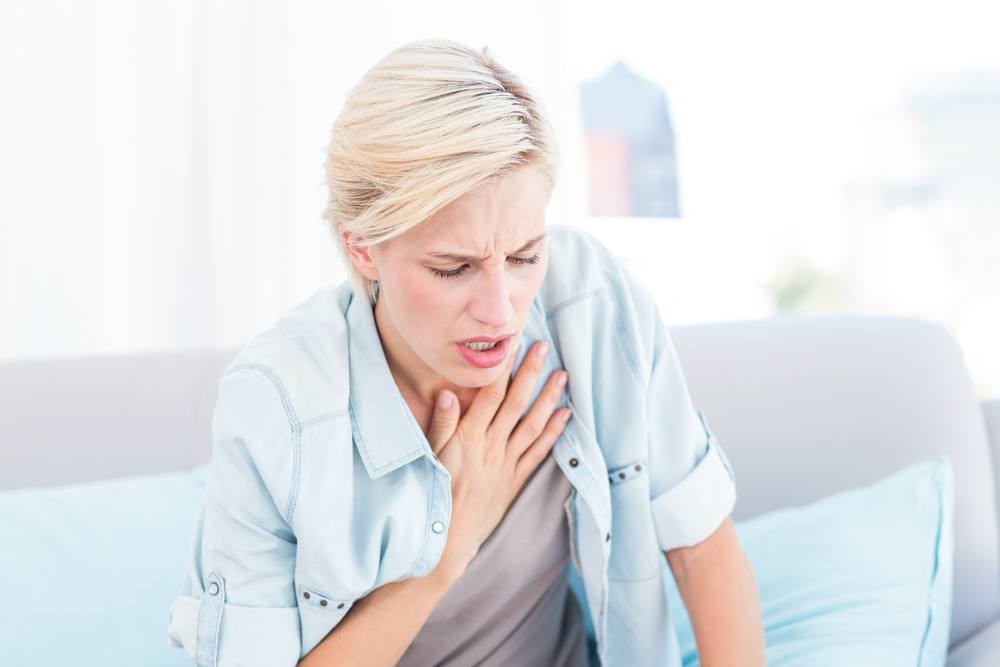Have you ever thought to yourself, “Wow, why am I out of breath after one flight of stairs?” Or possibly laid down to sleep and felt it was difficult to breathe–only catching short, shallow breaths?
Shortness of breath is the third most common type of emergency call.
There are many possible reasons for having shortness of breath. Each one is important to understand and can offer explanations on issues not seen on the surface.
What is Shortness of Breath?
Shortness of breath is the feeling of not being able to get full breaths or a state of feeling out of breath.
Feeling out of breath may be after exercise or when you are very tense. It can result in coughing, waking in the night, or chest pains.
What are Possible Causes?
Heart Failure
A symptom of heart failure is shortness of breath which is caused by the inability of the heart to properly fill and empty. Consequently, the blood vessels surrounding the heart and lungs experience increased pressure.
Heart failure is a serious matter. Approximately 1 in 4 people will die each year of heart disease and it is the leading cause of death in both men and women in the United States.
If you experience difficulty breathing lying down, needing to prop your head up to breathe easier, waking up in the middle of the night due to coughing or shortness of breath, you may have symptoms of heart failure. With any symptoms that may be related to heart failure, it’s important to consult with your physician.
Stress/Anxiety
When we are stressed or anxious, our chest and other muscles tighten, making it hard to breathe because our oxygen intake can become restricted. As a result, we breathe faster to get more air in. However, this triggers panic and more tightness of the chest, making it harder to breathe.
Anxiety affects 18% of the U.S. population. We are a fast paced, goal oriented nation. While those can be great assets, it can also be detrimental to our mental and physical state if left untreated.
Anxiety can lead to a vicious circle and may lead to panic attacks or other health concerns.
Relaxation, meditation, and exercise are key to reducing general stress and anxiety.
Asthma
Asthma affects breathing significantly due to inflammation of breathing airways. The airways become swollen and sensitive and therefore react intensely to certain airborne particles. These reactions can also be allergic responses to pollen or dander.
When this occurs, the muscles around the airways tighten and become more narrow, allowing less air to reach the lungs.
As shown above, the swelling and mucus in the airways severely reduce the space in the airways to allow oxygen through to fully fill the lungs. Many people have asthma but may not know since it can also be acute, or possibly only last a few days. About 14.2 million people visit the doctor with these symptoms and are diagnosed with asthma.
Obesity
Obesity causes shortness of breath for a couple reasons.
First, the extra weight on the chest makes it difficult to get deep breaths to supply enough oxygen.
Secondly, the more belly fat there is, the more the lungs struggle to fully function. Studies have found those with a larger waist size cannot exhale as much air after taking in a big breath as much as those with normal waist sizes.
Conditions like sleep apnea arise from these breathing issues and can have negative lifelong effects.
How Does it Relate to the Heart?
The heart, like every other muscle in the body, needs oxygen to function. More importantly, the lungs and heart work very closely together to make sure all other muscles work by pumping blood and oxygen to them.
Therefore, if the lungs cannot receive enough oxygen, then the heart cannot receive enough oxygen either, which can cause serious problems like heart failure or heart strain.
Solutions for Shortness of Breath
Be mindful of your breathing and try to notice if or when there are any irregularities.
If in doubt, be sure to seek medical attention as soon as possible.
If you feel stressed or anxious at times (who doesn’t?), try to relax. Go on a walk, step out of the stressful environment for a few minutes, take big, deep breaths from your diaphragm–not your chest.
If you fear you may have asthma or heart failure, make sure to consult your doctor. Asthma can be helped with inhalers or other medicines prescribed by your doctor. Heart failure is not a small problem and should be taken care of immediately as soon as symptoms arise.
Breathing problems associated with obesity can also be addressed and managed by visiting your doctor. Diet and exercise changes may need to be implemented to ensure better all-around physical well-being. Losing weight and eating healthier greatly reduces the stress on the heart and lungs and how much they have to work.
In brief, if you are experiencing any symptoms of shortness of breath or feel you strongly relate to any of the causes for shortness of breath listed above, seek medical help.
Resources:
http://circ.ahajournals.org/content/108/2/e11.full
http://www.adaa.org/about-adaa/press-room/facts-statistics

